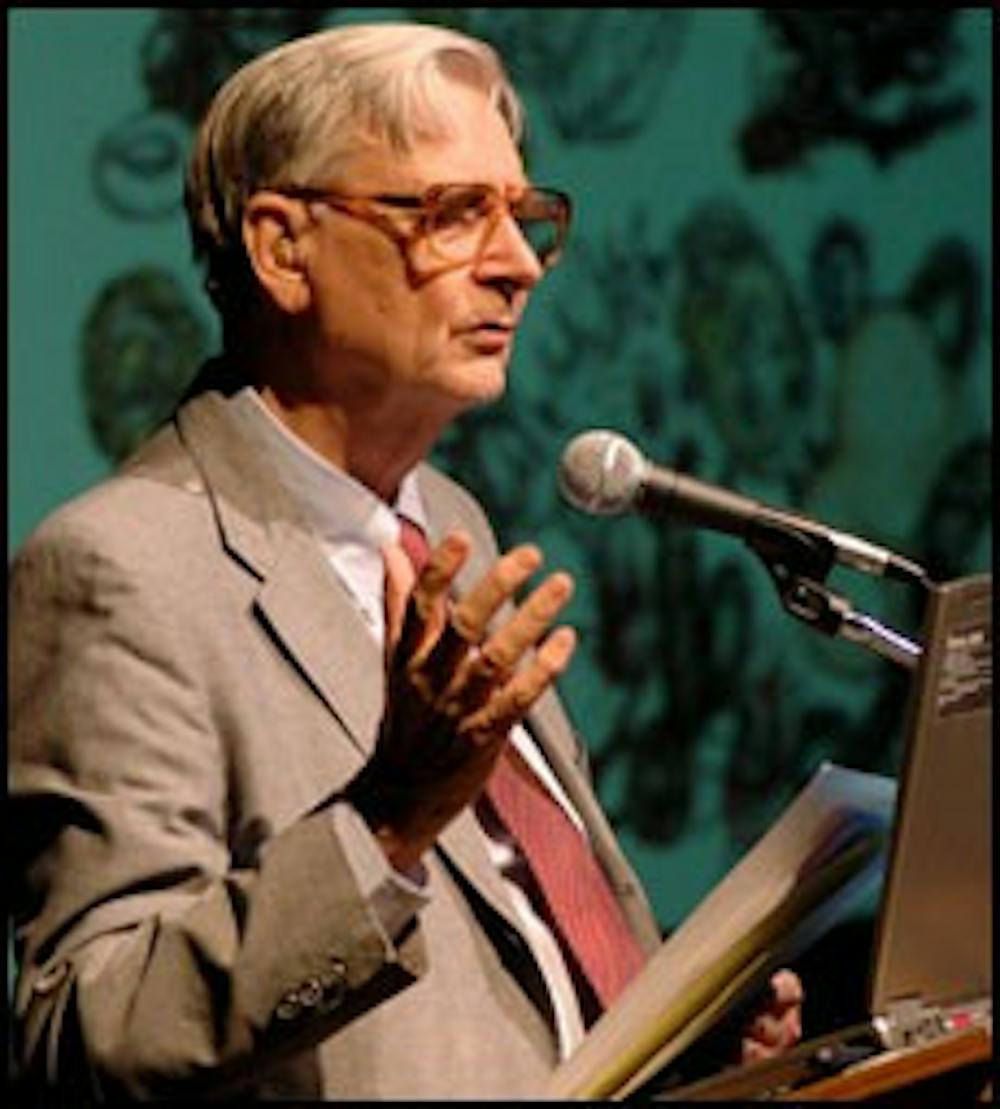A Pulitzer Prize-winning scientist and conservationist said Thursday more money and resources are needed for preserving biodiversity.
Harvard Professor Emeritus Edward O. Wilson, a leading authority on sociobiology, said if plant and animal species were allowed to rapidly deplete as they are currently, future generations would lose out.
Speaking to a capacity crowd at the Galvin Playhouse, Wilson said he was concerned about the future of the more than 1.8 million species in the world, especially because of the attitude of Conservatives at the highest levels of government.
"Many Conservatives still have serious doubts that there have been no changes on planet Earth due to human activity," he said. "But if you tell them what it would cost and how to solve the problem, they would listen."
Wilson added that he has approached evangelists in his conservation endeavor.
"I hope to engage the religious community in saving nature's creations," he said.
Wilson added that based on estimates made five years ago, it would cost about $28 billion to save "biodiversity hotspots," including the Amazon, Congo Basin and New Guinea, covering 70 percent of known animal and plant species.
That's not a huge amount, considering how much is being spent in Iraq, he said.
Wilson, along with ASU School of Life Sciences professor Bert Hoelldobler, won the Pulitzer Prize for their 1990 book "The Ants."
Hoelldobler said earlier Thursday that people don't realize how important these tiny bugs are to human existence.
"Many plants and animals wouldn't exist in a world without ants," he said. "Rainforests would die and desert lands would be gone."
The two biologists also collaborated on "Journey to the Ants" in 1994 and are currently working on their third book about social insects. Its working title is "Superorganism."
Hoelldobler described Wilson as a fantastic synthesizer and writer and said he enjoyed working with him.
Liz Makings, collections manager at the herbarium in the School of Life Sciences, said she hoped the lecture would inspire more people to increase conservation efforts.
"When you hear Wilson's name, you jump," she said.
Reach the reporter at sonu.munshi@asu.edu.




